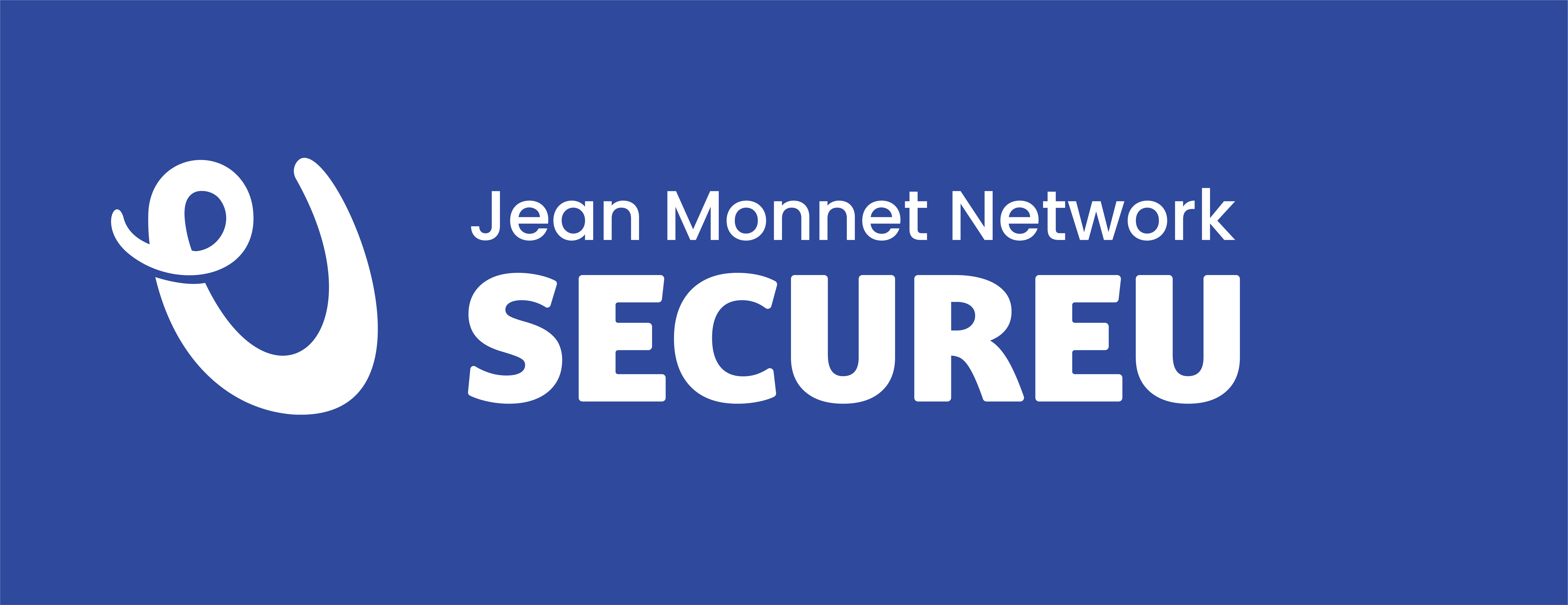Partners
- Institut Barcelona d’Estudis Internacionals (Spain)
- University of Amsterdam (The Netherlands)
- University of Glasgow (United Kingdom)
- Herder Institute for Historical Research on East Central Europe – Institute of the Leibniz Association (Germany)
- European Academy of Bozen-Bolzano (EURAC Research) Bolzano (Italy)
- Koç University (Turkey)
- Council for European Studies (European Office in Spain)
The Institut Barcelona d’Estudis Internacionals (Spain)
The Institut Barcelona d’Estudis Internacionals (IBEI) is the network lead, and its team includes the Network Director and the Network Coordinator. IBEI is Spain’s leading institution for advanced research and postgraduate training in international affairs. As an inter-university institute that was created in 2004 as a joint effort of all five public universities in the Barcelona metropolitan area, IBEI’s teaching and research activities focus on advancing the understanding of global challenges to governance in our world. The institute has 35 researchers from all over the world who engage in a large number of competitively funded research projects (at the Spanish and European levels) and publish in the most relevant international journals. IBEI´s research is cross-cutting and interdisciplinary and is organized into five thematic clusters that are indicative of its particular strengths in the study of conflict, security, and ethnicity. The institute also has an outstanding track-record of research on the European Union and Europe, in particular on EU foreign policy and European identity.
IBEI faculty teach in five fully accredited MA programs in international relations, international security, international development, and public policy. A highly diverse student body of about 140 students, from more than 30 different countries is annually attracted to these selective degree programs. Students have the option to take advantage of the 20 Student Exchange Agreements IBEI has signed with universities across the world. IBEI is also centrally concerned with the integration of teaching and research, with MA students being offered the possibility to gain experience as research assistants. Faculty also mentor and supervise PhD students, and 10 of those students currently hold positions within the framework of one of the institute’s research projects.
SECUREU Team at IBEI
- Matthias vom Hau
- Tutku Ayhan
- Lesley-Ann Daniels
- Irina Ciornei
- Juan Díez Medrano
- Margarita Petrova
- Avi Astor
University of Amsterdam (The Netherlands)
The University of Amsterdam (UvA) is one of the oldest and largest universities in Europe, with over 30,000 students, 2,800 academic staff and a budget of over 600 million euros. The UvA forms an integral part of the city of Amsterdam, a hub of cultural and media activities, as well as a world center for business and research. The UvA belongs to the League of European Research Universities (LERU) and maintains intensive contact with universities around the world.
The Department of Sociology, part of the Faculty of Social and Behavioral Sciences, focuses on the spatial and socioeconomic mobility of the urban population, the rise and fall of urban lifestyles and cultures, social relations between individuals and groups, old and new forms of discrimination, inequality, and citizenship, as well as the policy dimensions. The department is embedded in the Amsterdam Institute for Social Science Research (AISSR), which has been recognized by Times Higher Education as the best Social Science Research Institute in Mainland Europe (2011-2013).
In H2020 until now 197 UvA projects are funded, divided as follows:
- 59 ERC projects
- 65 Marie Curie projects
- 60 Research & Innovation Actions
- 4 Innovation Actions
- 9 Coordination Support Actions
In addition to grants from the Netherlands Organization from Scientific Research (NWO), the AISSR has been granted in total 29 ERC grants: 15 ERC starting grants, 7 ERC Consolidator grants and 7 ERC advanced grants. The UvA in its entirety has been granted 104 ERC grants since the start of the ERC grant program.
SECUREU Team at the University of Amsterdam:
University of Glasgow (United Kingdom)
Founded in 1451, the University of Glasgow (UoG) is the fourth oldest university in the English-speaking world. UoG is in the top 0.5% of universities in the world. The School of Social and Political Sciences includes over 100 academic and research staff and a large community of undergraduate and postgraduate students. In the UK Research Excellence Framework 2014, over 80% of the School’s research performance was assessed in the two top categories of 4* world-leading or 3* internationally excellent. It holds a Jean Monnet Chair for EU External Policies.
UoG is a world leader in research on international issues pertaining to security and warfare. With its Global Network (established and led by Butler), Chairs in Global Security and International Security and extensive external links to private and public security organizations, it has created an exciting and dynamic network of academic staff and students from multi –discipline backgrounds and offers two large Master’s programs in Global Security and Security, Intelligence & Strategic Studies (Erasmus Mundus International Master). UoG has also had a long-term strategic engagement with the Russian, Central and East European region since 1917 and more concretely since 1949 with the establishment of its Institute of Soviet Studies (now renamed as the UK Language Based Area Studies Centre of Excellence, the Centre for Russian, Central & East European Studies, CRCEES). CRCEES staff (Smith) edit the Europe-Asia Studies (formally Soviet Studies) journal – the principal academic journal in the world in this field. The School has formal exchange and joint degree arrangements with HEIs across Europe including Central and Eastern Europe, and Central Asia. Two of the core research areas within CRCEES relate to ‘Statehood, Nationhood and Identity’ and ‘Migration and Mobility’. Glasgow today coordinates 4 Erasmus Mundus Joint Master Degrees (EMJMDs) – and two of these are managed by CRCEES staff.
SECUREU Team at the University of Glasgow
Herder Institute for Historical Research on East Central Europe – Institute of the Leibniz Association (Germany)
The Herder Institute for Historical Research on East Central Europe is a member of the Leibniz Association, one of the four major research organizations in Germany. It is an institution that holds unique collections and develops research infrastructures based on transnational collaboration In the past five years, it also focused on the development of services for universities and public stakeholders. By the end of 2019, the permanent staff amounted to 68, with additional 38 being affiliated with the institute on the basis of third funding or via other sources.
The Herder Institute has a disciplinary focus in history, art history, cultural studies, and historical geography. In the past few years, the institute also established itself as a hub for digital humanities in cooperation with European and transnational partners (like Princeton and Stanford). With its conferences, workshops and discussion forums it is a center of reference form the comparative and transnational study of Eastern Europe. The Herder institute organizes summer schools for young researchers as well as master classes. The Herder Institute Research Academy (HIRA) is unique in combining the discussion of dissertation and post-doc projects with career coaching and insights into the differences between different national academic cultures. The Herder Institute publishes the most highly-regarded journal for the study of Eastern Europe, the “Zeitschrift für Ostmitteleuropa-Forschung Journal of East Central European Studies.” The research library and various scientific collections, in particular, hold around half a million publications, almost 5 million newspaper clippings, some 600,000 mages, more than 40,000 maps and 1,400 meters of shelves of written sources. With the use of these materials, the staff of the Herder Institute teaches at the universities in Giessen and Marburg. Meanwhile, the web portal “Documents and Materials for East Central European History” makes teaching materials and information available to everyone around the world.
SECUREU Team at HI:
European Academy of Bozen-Bolzano (EURAC Research) Bolzano (Italy)
The European Academy of Bozen-Bolzano (EURAC Research), Italy, established in 1992, is a private non-profit organization for applied research and further education, supported by both private and public funding. It has a turnover of about €34.5 million and almost 400 collaborators. EURAC Research is composed of 12 institutes.
The Institute for Minority Rights of EURAC Research brings to the project consortium a strong expertise on minority rights and diversity governance. The institute has years of experience in basic and applied research on issues of minority protection, cultural diversity and integration, and ethnic conflict resolution. It focuses on issues of cohesion and governance in pluriethnic societies, including the new challenges related to migration into territories inhabited by minorities. The institute publishes various high-end academic publications, and offers consultancy and training on minority rights worldwide.
At present EURAC Research is involved as either coordinator or partner in about 54 projects funded within various EU programs (e.g. EURASIA-Net, the “Europe-Asia exchange project on experiences of the politics of recognition (2003-2006),” MIMI, “MigrAlp” and “LISI”). The current EUMINT project, intends to strengthen institutional cross-border cooperation between Italy and Austria in the territories of Südtirol-Alto Adige (IT), Tirol (AT), Friuli Venezia Giulia (IT), Kärnten (AT), Veneto (IT) and Trentino (IT) in order to tackle social, economic, political and cultural challenges connected to migration.
Since 1999, the Institute for Minority Rights of EURAC Research has organized a Summer School on Human Rights, Minorities and Diversity Governance., which attracts students from all over the world. The Summer School follows an interactive approach through seminars, role plays, workshops and field trips.
EURAC has conference facilities which can be used free of charge for project workshops and meetings.
SECUREU Team at EURAC:
Koç University (Turkey)
Koç University (KU) is an endowed, non-profit institution of higher education, located in Istanbul, Turkey. Since its establishment in 1993, KU has quickly become one of the leading research universities in Turkey. The university is ranked among the top three universities in Turkey in terms of the number of international research publications per faculty member per year, based on publications in peer- reviewed journals listed by the Institute of Scientific Information (ISI). In 2018, KU was ranked 40th in the world among “top 100 universities younger than 50” by Times Higher Education.
The vast majority (97%) of 400 faculty members have received their PhD degrees from the prestigious universities around the world. The majority of the students enrolled in undergraduate programs are ranked within the top 1% in the National University Entrance Exam. KU maintains an overall ratio of 11 students per instructor.
KU’s College of Administrative Sciences and Economics, where both Koc Network Members at BRIDGE currently work, and Graduate School of Business, are accredited by the European Quality Improvement System (EQUIS). KU’s Executive MBA program was ranked 63rd in the world.
From 2004 to October 2018, 820 research and implementation projects from various disciplines were funded by national, European and worldwide institutions. KU’s performance Under EC’s FP7 was as follows (at the end of 2013): 37 coordinated projects under Marie Curie, 20 partnered Cooperation projects, 4 Capacities projects and 3 ERC projects. Under Horizon 2020, KU researchers are awarded 8 ERC Frontier Grants (out of 16 in Turkey) and 3 ERC Proof of Concept grants, 8 MSCA Individual Fellowships and 7 cooperation projects (as partner). Among all Turkish universities and Turkish industry, KU currently manages the highest number of projects and the highest budget (around 11M EUR) under Horizon 2020.
SECUREU Team at Koc University:
Council for European Studies (European Office in Spain)
The mission of the Council for European Studies (CES) is to produce, support, and recognize outstanding, multi-disciplinary research on Europe through a wide range of programs and initiatives. These include fellowships, grants, publications, awards, conferences and meetings, public lectures and symposia, as well as direct research and artistic collaboration. CES is particularly committed to supporting research that can play a critical role in understanding and applying the lessons of European history and integration to contemporary problems, including those in the areas of global security, sustainability, environmental stewardship, digital societies and democracy. With only 8 founding universities in 1970, CES today gathers more than 100 academic member institutions worldwide and 16 active Research Networks, as well as 1500 individual members to work on pressing European issues in an interdisciplinary setting.
SECUREU Team at CES:






